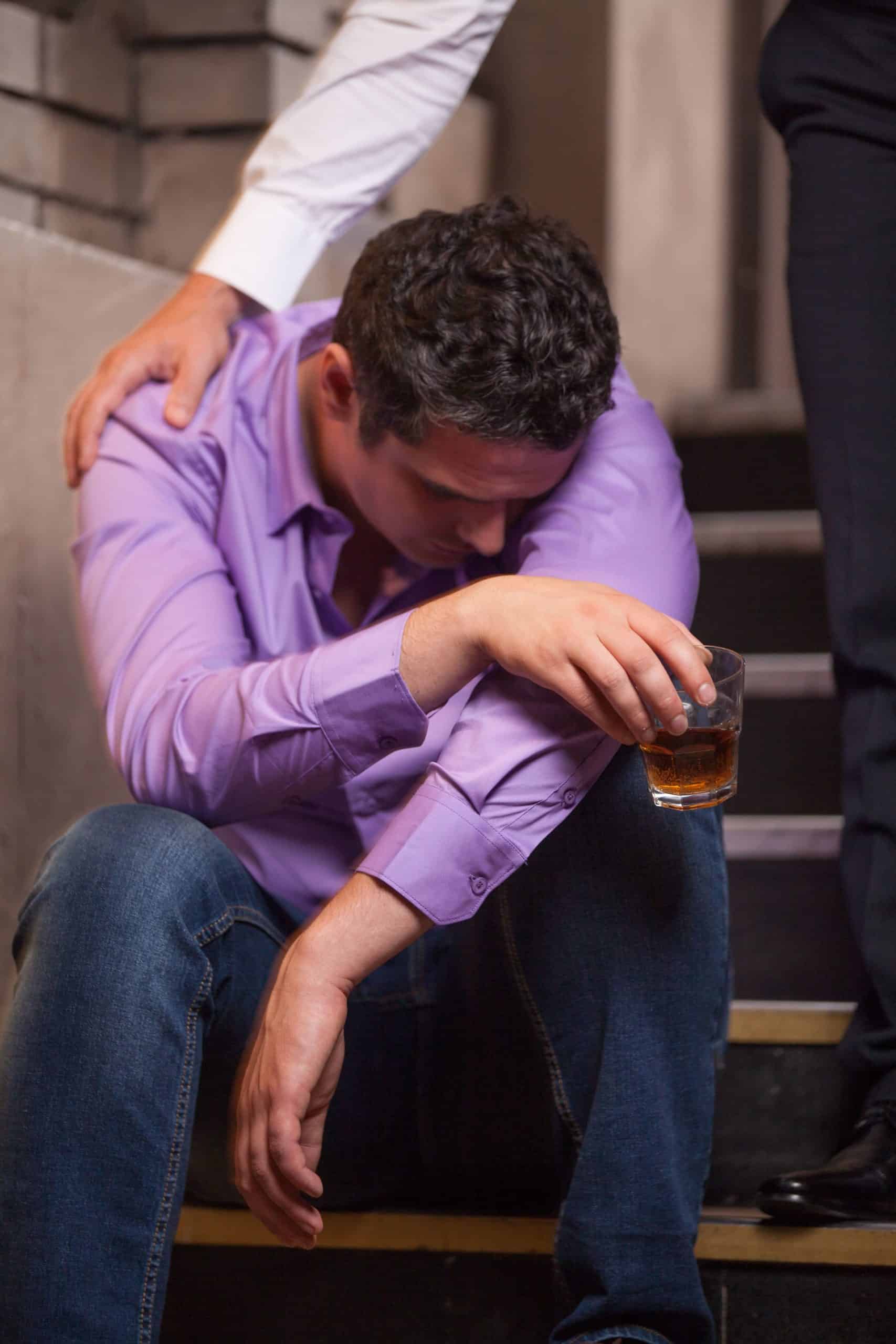
Recognizing the Warning Signs of Addiction
Recognizing the signs you need rehab can be challenging, especially because denial is often a symptom of addiction. At Tulip Hill Recovery, we are here to help make this critical self-assessment simpler. If you have been questioning “Do I need rehab?” it is important to pay attention to both the physical signals and behavioral patterns you’re experiencing.
Physical and Health Indicators
Addiction often manifests through various physical signs. These can include noticeable weight loss or gain, changes in sleeping patterns, decline in personal hygiene, unexplained bruises or injuries, and withdrawal symptoms when substance use is stopped.
Physical dependence is one of the most glaring signs you need rehab. When the body starts to need the substance to function or to ward off withdrawal symptoms, it’s clear that the addiction has taken a firm hold. You might notice:
- An increased tolerance to the substance
- Experiencing withdrawal when not using it
- Intense cravings that dominate thought patterns
Additional physical shifts include:
- Insomnia or sleeping at odd hours
- Drastic changes in eating habits, leading to weight loss or gain
- Using substances to initiate sleep or to stay awake
Behavioral and Emotional Changes
Behavioral changes are significant indicators. This includes increased secrecy, withdrawal from friends and family, neglect of responsibilities, and engaging in risky behaviors.
Indicators That It’s Time for Change
Here are some tell-tale behavioral signs that suggest rehab could be the next essential step. The signs you may need rehab include:
- Withdrawal from loved ones: If there’s a noticeable pattern of isolation and avoidance of social interactions, it’s often a red flag.
- Neglect of responsibilities: Work, school, and family obligations start to take a backseat.
- Legal issues: An increase in encounters with law enforcement may be a direct result of substance-related behaviors.
- Secrecy and denial: A persistent refusal to acknowledge substance use or its severity indicates denial, a common hurdle in addiction.
While reflecting on these behaviors, asking the question, “Do I need rehab?” becomes less about seeking permission and more about acknowledging necessity.
Emotional signs include mood swings, increased irritability, depression, and anxiety.
Social and Relationship Impacts
Active addiction often has profound impacts on an individual’s social and personal relationships. The compulsive pursuit of substance use overshadows bonds with family, friends, and colleagues. Relationships may suffer due to decreased reliability and trustworthiness, as the addiction takes precedence over commitments and responsibilities.
Family members and close friends often experience feelings of hurt, confusion, and frustration. This leads to strained or broken relationships. Additionally, the social circle of a person struggling with addiction might change. Oftentimes, they gravitate towards others who share similar addictive behaviors, further isolating them from healthy support networks.
This isolation can exacerbate the addiction, creating a vicious cycle where the individual becomes increasingly dependent on substances for emotional support. Rehab programs not only focus on breaking this cycle of addiction but also on rebuilding and healing these damaged relationships. Furthermore, rehab emphasizes the importance of a strong, supportive community in long-term recovery. Understanding the signs you need rehab can help you make a well-informed decision on if addiction treatment is right for you.

Inpatient Rehab vs. Other Clinical Care
Understanding the level of care you need is crucial. Inpatient rehab is often recommended for those with severe addiction, where constant medical supervision and a structured environment are beneficial. However, there are several different levels of clinical care to choose from.
Inpatient Rehab
Inpatient treatment is often considered the best option for addiction treatment due to several key factors. Firstly, it provides a structured and controlled environment. This setting removes the person from potentially triggering environments and situations that could lead to relapse.
Secondly, inpatient programs offer intensive and comprehensive care, including medical supervision. This level of monitoring is essential for those dealing with severe addiction or withdrawal symptoms. The round-the-clock care ensures safety and support during the detoxification process and early recovery stages. Inpatient treatment also provides a community of peers and professionals. Ultimately, this fosters a supportive network that encourages personal growth and recovery. Additionally, these programs often offer a variety of therapies, including individual counseling, group therapy, and sometimes holistic approaches, which are crucial for addressing underlying issues and promoting long-term sobriety.
Additional Levels of Care
However, addiction treatment can be tailored to the individual’s needs, and there are several other levels of care available, including:
Outpatient Treatment: This allows individuals to live at home while attending therapy and treatment sessions at a clinic or facility. It’s suitable for those with less severe addictions or as a step-down from inpatient care.
- Detoxification Centers: These facilities focus on safely managing withdrawal symptoms from substances, usually as the first step in the treatment process before transitioning to another level of care.
- Intensive Outpatient Programs (IOP): These programs are more rigorous than standard outpatient treatment, requiring several hours of therapy per week while the individual continues to live at home.
- Partial Hospitalization Programs (PHP): PHPs provide a high level of care, often involving medical supervision and therapy for several hours a day, multiple days a week, but still allow the individual to live at home.
- Sober Living Homes: These are residential facilities that offer a substance-free environment for individuals recovering from addiction, typically used as a transitional living situation after completing inpatient treatment.
Each person’s path to recovery is unique, and we are here to guide you every step of the way. Together, we can assess the signs of addiction, and explore the possibilities that lead to a brighter, addiction-free future.
Severity of Addiction & Other Factors
Inpatient rehab is ideal for individuals with a long history of addiction, severe withdrawal symptoms, or co-occurring mental health disorders.
Environmental Factors
If your environment contributes to substance use (e.g., high-stress situations or access to substances), a change of environment provided by inpatient rehab can be beneficial.
Previous Treatment History
For those who have relapsed after outpatient treatment or other interventions, inpatient rehab offers a more intensive approach.

When to Go to Rehab
Deciding when to go to rehab is a personal decision, but some signs include:
- Inability to stop using despite wanting to.
- Substance use causes health problems.
- Impact on work, school, or family life.
- Failed attempts to quit on your own.
How to Know if You Need Rehab
Self-Assessment
Reflect on your substance use. Ask yourself if it’s affecting your quality of life, health, and relationships. Honesty is key in this self-assessment.
Here are several questions you might want to ask yourself when considering whether or not rehab is necessary:
- Have I tried to quit on my own and failed? Reflect on past attempts to stop using substances and consider if they were unsuccessful despite genuine efforts.
- Is my substance use affecting my health, relationships, or work? Evaluate if addiction is causing harm to physical health, straining family and social connections, or impairing performance and responsibilities at work.
- Do I experience withdrawal symptoms when I don’t use the substance? Consider physical or psychological symptoms like shaking, nausea, anxiety, or depression that occur when substance use is stopped or reduced.
- Have I neglected hobbies or activities I used to enjoy? Think about whether substance use has led to a loss of interest in previously enjoyed hobbies and activities.
- Am I using substances to cope with stress or emotional pain? Assess if substance use is a primary method for dealing with difficult emotions or stressful situations.
- Has my substance use led to risky or dangerous behaviors? Reflect on instances where substance use may have led to dangerous situations, like driving under the influence or risky sexual behavior.
- Do I lie about or hide my substance use from others? Consider if there has been a need to conceal the extent of substance use from friends, family, or colleagues.
Feedback from Loved Ones
Often, those close to us see the signs before we do. Listen to concerns from friends and family about your substance use.
Professional Assessment
Consulting with a healthcare professional or an addiction specialist can provide clarity on whether rehab is the right step for you.
The Benefits of Rehab
Rehabilitation offers structured treatment programs, support from professionals and peers, development of coping strategies, and a focus on long-term recovery.
Benefits of rehab include:
- Safe and Structured Environment: Rehab provides a secure setting, away from daily life triggers, crucial for breaking the addiction cycle.
- Comprehensive Care: Includes medical supervision during detoxification, mental health support, and therapy to address underlying causes of addiction.
- Supportive Community: Access to a network of peers and professionals who understand the challenges of addiction, offering encouragement and understanding.
- Development of Healthy Coping Mechanisms: Rehab nurtures the skills necessary for managing triggers and maintaining sobriety after treatment.
- Life Skills Training: Teaches essential skills for navigating daily life post-rehab, promoting independence and resilience.
- Aftercare Planning: Provides continued support and guidance post-rehab to ensure a smooth transition back into everyday life.
- Holistic Approach to Healing: Addresses the physical, emotional, and psychological aspects of addiction for comprehensive recovery.
- Reduced Risk of Relapse: The structured program and support system in rehab significantly decrease the likelihood of returning to substance use.

Learn More About When to Go to Rehab
Identifying the signs you need rehab is a significant first step in addressing substance use disorders. Whether acknowledging the need for help, understanding when inpatient care is necessary, or overcoming barriers to treatment, the journey to recovery begins with recognizing the need for change. If you find yourself questioning, “Do I need rehab?” or how to know if you need rehab, know that seeking help is a brave and vital step toward a healthier, happier life. Contact us today to begin.



 Call Us
Call Us
 877-845-8192
877-845-8192